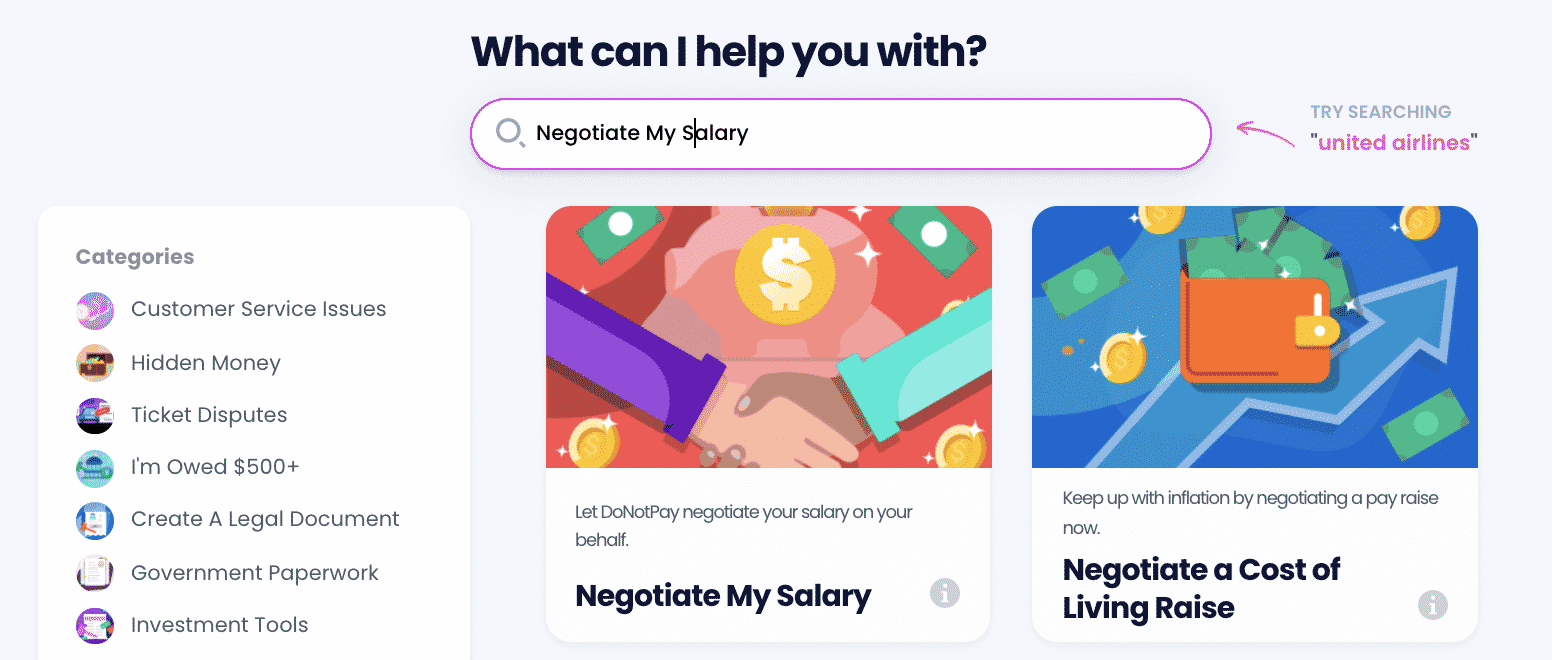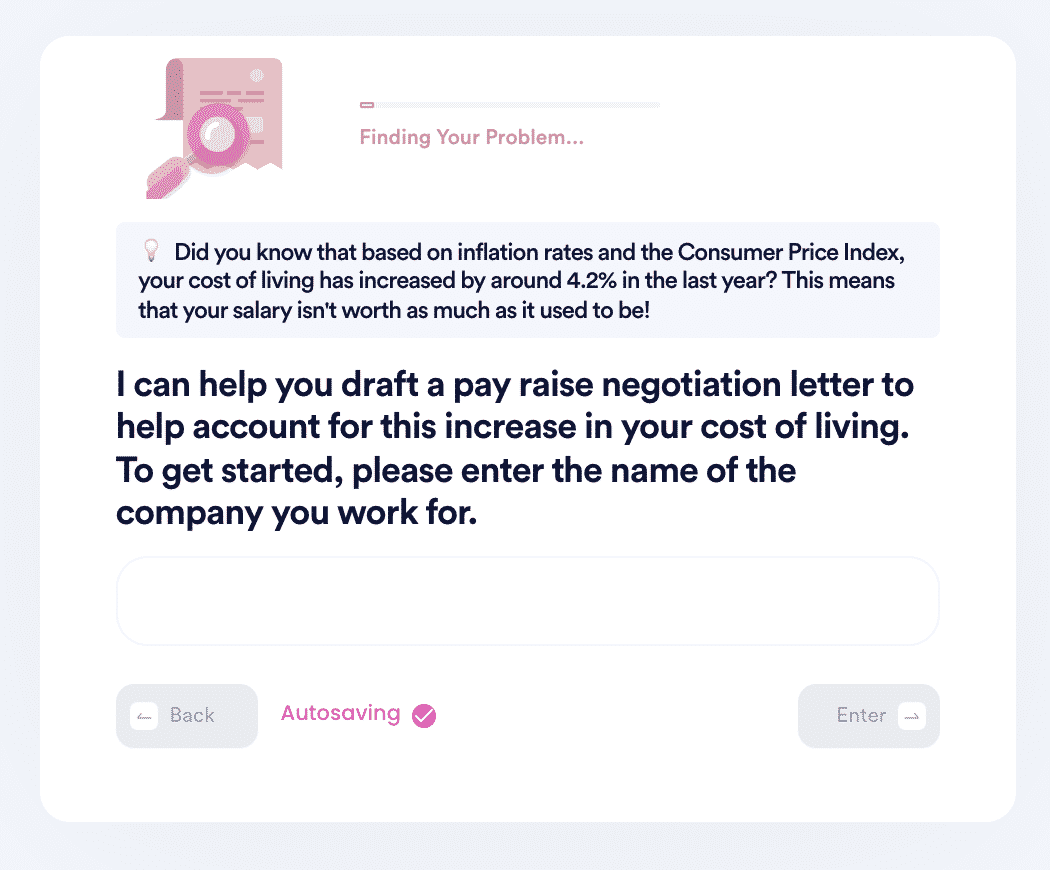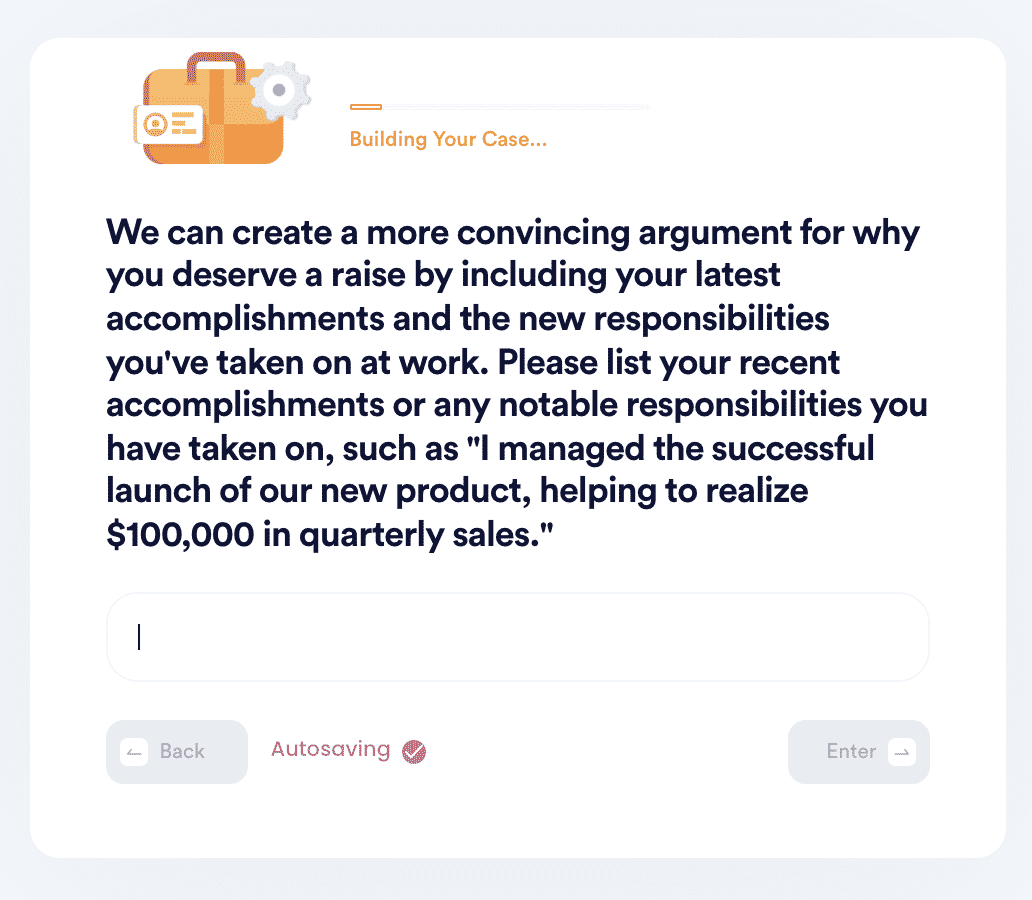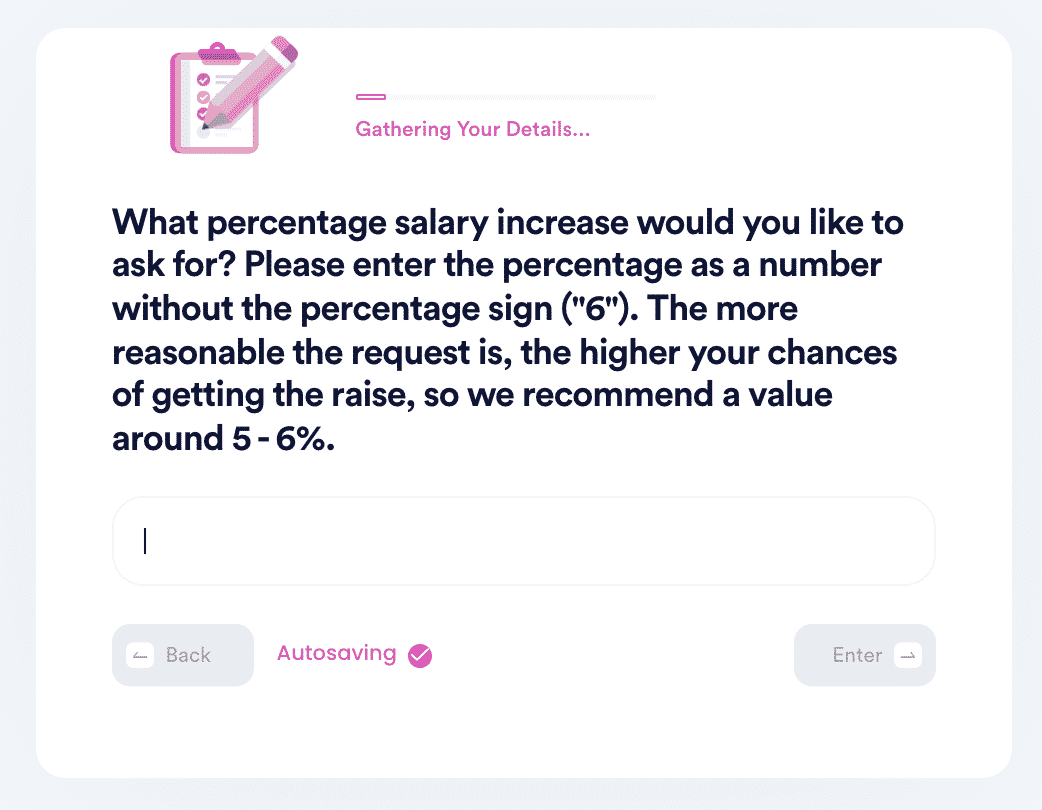How to Negotiate Your Salary Due to Rising Inflation
The simplest way to describe inflation is when the purchasing power of a dollar decreases. In the past year alone, the Consumer Price Index (the average change over time in the prices paid by urban consumers for a market basket of consumer goods) increased by ~6.8%. Since the CPI is the primary measure for the cost of living, this directly translates to your salary being worth 4.2% less than it used to be.
Therefore, if the rise in inflation is higher than the increase in your income, it's time to request your employer for a pay rise to keep up with inflation. can seem overwhelming for most people, but with the help of DoNotPay, you can get it done fast and conveniently.
How to Negotiate Your Salary
The best way to negotiate your salary is face to face. Alternatively, you could negotiate through email by sending your employer a negotiation letter. If you're wondering the best time to send that letter, you should start by asking yourself when did you last get a raise?
Keep the following in mind:
| Market rate of inflation: | What should the pay raise be to keep up with inflation? The Bureau of Labor Statistics (BLS) provides monthly releases of the consumer price index (CPI). CPI measures the average change in a fixed market basket price of consumer goods and services. You can therefore weigh the rate of |
| Market demand for your skills: | Getting proof of increased demand for your qualifications in the market can make for a good bargaining tip for a salary increase. |
| Increased competency and responsibilities: | It's essential to keep tabs on your duties in a certain role and how they've grown over time. This and proof of results in that position can help your employer see your contribution to the company. |
With that information, your chances of successfully negotiating a pay rise increase substantially.
How Much Should Your Salary Be Increased?
It should be standard practice for employers to give out salary raises. This goes a long way in ensuring employees maintain the same buying power corresponding to the rising cost of living. The usual pay rise is a 2% to 3% increase, but higher inflation rates have seen The Conference Board report an expected increase by at least 3.9% in 2022.
How Often Should You Get a Pay Rise?
If you are new to a company, it's advisable to wait at least six months before requesting a pay rise. However, if you've been with a company for several years, you could ask for a raise annually.
Note: You should also try to determine if the company has set a period for salary review.
How to Calculate Salary Increase Based on Inflation
Given the uncertainties around inflation, you can follow the following steps to calculate how much your salary should increase based on the current inflation rate.
- Obtain the 12-month rate of inflation from the Consumer Price Index (CPI).
- Convert the percentage rate to a decimal.
- Add one to the result from Step (2) above.
- Multiply your current salary by the result from Step 3. This should give you your inflation-adjusted wage.
- Subtract your current salary from the result in Step 4. You will get the CPI increase.
How to Negotiate a Salary Increase on Your Own
While it never hurts to ask for better compensation, be it for a new job offer or your current role, most employers won't be very open to increasing your base salary or negotiating your current pay. Therefore, prepare discussion points before walking into a meeting with your employer or sending a salary negotiation letter. You should focus on:
- Discussing the rate of increase in inflation and its impact on the cost of living.
Other points you could also focus on include:
- State other job offers. It helps if your skills have an increase in demand.
- Research from other industries to get the average salary for your role.
- If it's a new role, you could mention moving expenses and the higher cost of living in the new city or town.
- Focus on your skills and qualifications, and proven results in your role.
Be sure to clearly articulate your arguments and appear confident. That way, you stand a better chance at getting a pay rise.
Note: It's not recommended to negotiate your salary over the phone. Instead, use your phone to schedule an appointment with the employer or send an email.
How to Negotiate a Salary Increase With the Help of DoNotPay
Going about salary negotiations can be an anxiety-filled task that may directly affect your work productivity. It would be best to spare a lot of time to research your supporting arguments, draft your negotiation letter, or reserve ample time to have this conversation with your employer. DoNotPay is here to help. You can eliminate all this stress by enlisting DoNotPay to draft you a comprehensive negotiation letter that you can present to your employer with confidence.
All you have to do is:
- Search “negotiate my salary” on DoNotPay.

- Enter the name of your company and the industry you work in, so we can find the right wage statistics for your role.

- Answer a series of questions regarding your qualifications and achievements, relocation expenses, and other job offers if applicable.

- Enter the new base salary you would like to request.

And that's it. Upon finalizing the information, DoNotPay will generate an official salary negotiation letter that you can email or present to your employer.
How Else Can DoNotPay Help?
You can access DoNotPay on any web browser on your phone or PC to enlist DoNotPay's help. Not only but also other well-tailored features to cater to your daily needs, including:
- Assisting in reducing property taxes
- Hacks to receive your chargebacks and refunds
- Help fight workplace discrimination
- Ways to get a clean credit report
- Tips to help with your bills
Learn more about DoNotPay today to take full advantage of the various features they have to offer.
Salary Increase Inflation — Frequently Asked Questions
What's the average inflation salary increase for 2023?
The overall salary increase is projected to be 4.6% in 2023, which is significantly higher when compared to the 3.1% increase from 2018 to 2021.
Can you request a salary increase due to inflation?
Yes, experts believe that if you have not received a pay raise in the past year, it is time to request a higher salary. Make sure you quote the latest inflation figures to demonstrate that you have done a thorough research and that you have thought it through.
How does inflation affect salary increase?
Inflation and salary increases tend to have a positive correlation, meaning as inflation rises, salaries also increase. However, research suggests that salary increases do not keep up with inflation. It is therefore essential to negotiate a higher salary due to inflation. You may use DoNotPay to generate a customized formal letter that'll help you get a raise to keep up with inflation.
 By
By